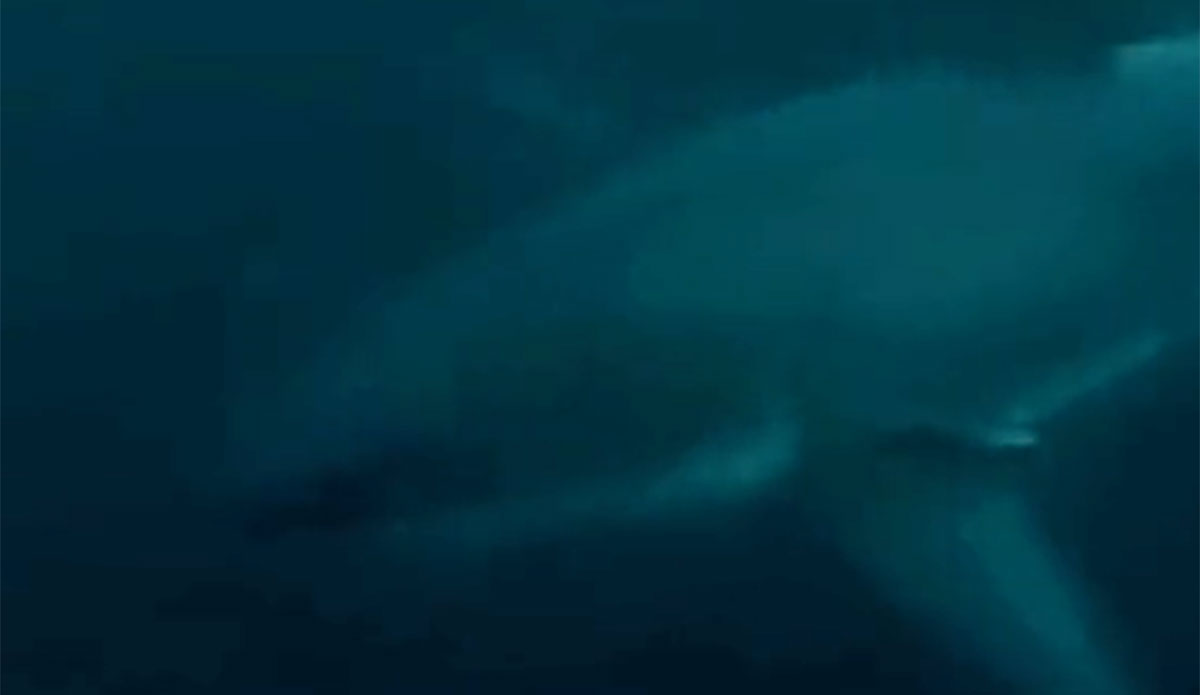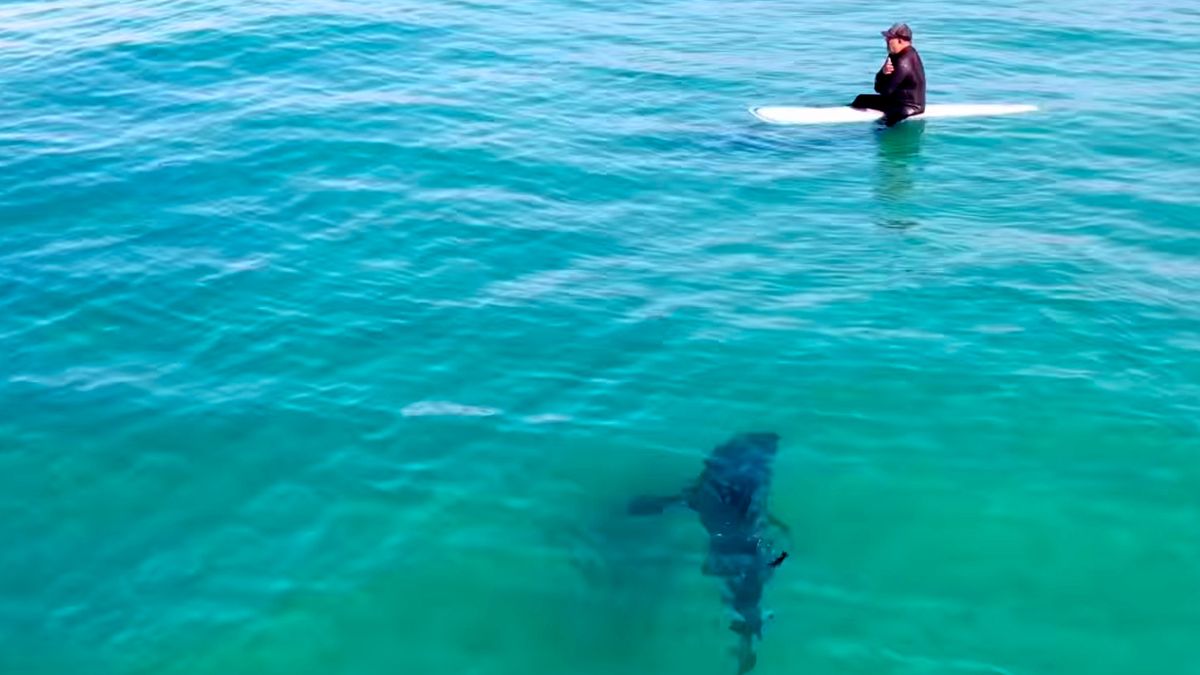When you hear the phrase "white shark surfer," images of intense encounters between humans and nature's most feared predator immediately come to mind. The great white shark, one of the ocean's most iconic creatures, has long fascinated and terrified surfers worldwide. From coastal waters to deep blue seas, these majestic animals continue to shape the way we perceive surfing and marine life. Understanding the relationship between surfers and white sharks is crucial for both safety and conservation efforts.
For many surfers, the ocean is a playground, a sanctuary, and a source of adventure. However, sharing this vast expanse of water with apex predators like the great white shark adds an element of unpredictability and danger. While shark attacks on surfers are rare, they do happen, and understanding the behavior of these creatures can make all the difference in ensuring a safe surfing experience.
This article dives deep into the world of the white shark surfer, exploring the science behind shark behavior, safety tips for surfers, and the importance of conservation efforts. Whether you're an experienced surfer or simply curious about the relationship between humans and marine life, this comprehensive guide will provide valuable insights and actionable advice.
Read also:Erome Lelasohna A Rising Star In The Music Scene
Table of Contents
- Biography of the White Shark
- White Shark Statistics
- Surfer Safety Tips
- Understanding White Shark Behavior
- Environmental Impact on White Sharks
- Conservation Efforts for White Sharks
- Debunking Myths About White Sharks
- Technology in Shark Research
- Famous White Shark Surfer Encounters
- The Future of White Shark Surfer Relationships
Biography of the White Shark
Physical Characteristics
The great white shark (Carcharodon carcharias) is one of the most formidable predators in the ocean. Growing up to 20 feet in length and weighing over 5,000 pounds, these creatures are built for speed and power. Their streamlined bodies, powerful tails, and razor-sharp teeth make them efficient hunters in the marine ecosystem.
Key features of the great white shark include:
- Triangular teeth with serrated edges
- Gray upper body and white underbelly for camouflage
- Keen sense of smell and electroreception
Habitat and Range
Great white sharks can be found in coastal waters around the world, particularly in temperate and tropical regions. They are commonly spotted near popular surfing spots such as Australia, South Africa, and California. These sharks prefer waters with abundant prey, including seals, sea lions, and fish.
Below is a table summarizing the key data about great white sharks:
| Characteristic | Details |
|---|---|
| Average Length | 15-20 feet |
| Average Weight | 1,500-5,000 pounds |
| Lifespan | 30-70 years |
| Speed | Up to 35 mph |
White Shark Statistics
Despite their fearsome reputation, great white sharks are not as dangerous to humans as one might think. According to the International Shark Attack File (ISAF), there are approximately 50-70 unprovoked shark attacks worldwide each year, with only a small percentage involving great whites.
Here are some key statistics about great white sharks:
Read also:Brooke Teague And Nathan Smith Instagram The Ultimate Story Of Love Life And Social Media Fame
- Only about 5-10 fatal shark attacks occur annually
- Surfers account for approximately 20% of all shark attack victims
- Great white sharks are responsible for around 30% of all shark attacks
Surfer Safety Tips
Precautions to Take
For surfers venturing into waters where great white sharks are known to inhabit, taking precautions is essential. Here are some tips to stay safe:
- Avoid surfing at dawn or dusk when sharks are most active
- Stay close to the shore and avoid isolated areas
- Do not wear shiny jewelry or brightly colored clothing
- Surf in groups rather than alone
What to Do During an Encounter
If you encounter a great white shark while surfing, remaining calm is crucial. Here's what you should do:
- Slowly back away from the shark without making sudden movements
- Use your surfboard as a shield if the shark approaches
- Do not attempt to touch or provoke the shark
Understanding White Shark Behavior
Hunting Patterns
Great white sharks are highly intelligent predators with complex hunting patterns. They often employ a technique known as "spy-hopping," where they rise vertically out of the water to observe their surroundings. This behavior helps them locate potential prey and assess threats.
Communication and Social Structure
While great white sharks are primarily solitary creatures, they do exhibit some social behaviors. Studies have shown that they communicate through body movements and subtle interactions, particularly during feeding or mating seasons.
Environmental Impact on White Sharks
Human activities such as overfishing, pollution, and climate change pose significant threats to great white shark populations. These environmental factors disrupt their natural habitats and food sources, making it harder for them to survive.
Key environmental challenges include:
- Illegal shark finning for commercial purposes
- Habitat destruction due to coastal development
- Ocean warming and acidification
Conservation Efforts for White Sharks
Several organizations and governments have implemented measures to protect great white sharks. These efforts include:
- Establishing marine protected areas (MPAs) to safeguard critical habitats
- Enforcing stricter fishing regulations to prevent overfishing
- Conducting research to better understand shark behavior and migration patterns
Debunking Myths About White Sharks
There are many misconceptions surrounding great white sharks. Here are some common myths and the truth behind them:
- Myth: Great white sharks deliberately target humans for food
Truth: Most shark attacks on humans are cases of mistaken identity - Myth: Sharks are mindless killing machines
Truth: Sharks are intelligent creatures with complex behaviors
Technology in Shark Research
Advancements in technology have revolutionized the way scientists study great white sharks. Tools such as satellite tagging, drones, and underwater cameras provide valuable insights into their movements and behavior.
Key technologies used in shark research include:
- Acoustic tags for tracking shark migrations
- Drone surveillance for monitoring shark activity
- 3D modeling for analyzing shark anatomy
Famous White Shark Surfer Encounters
Throughout history, there have been several notable encounters between surfers and great white sharks. These stories highlight the bravery of surfers and the awe-inspiring nature of these creatures.
One famous incident occurred in 2012 when surfer David Rastovich came face-to-face with a great white shark off the coast of Australia. Instead of panicking, Rastovich calmly paddled away, demonstrating the importance of staying composed during such encounters.
The Future of White Shark Surfer Relationships
As our understanding of great white sharks continues to grow, the relationship between surfers and these magnificent creatures will evolve. By promoting education, conservation, and responsible surfing practices, we can ensure a harmonious coexistence with the ocean's apex predators.
Conclusion
Exploring the world of the white shark surfer reveals a fascinating intersection of human adventure and marine biology. From understanding shark behavior to implementing safety measures, this article has provided comprehensive insights into the complexities of this relationship.
We encourage readers to share their thoughts and experiences in the comments section below. Additionally, don't forget to explore other articles on our website for more information on surfing, marine life, and conservation efforts. Together, we can make a difference in protecting the ocean's incredible creatures while enjoying the thrill of surfing.


